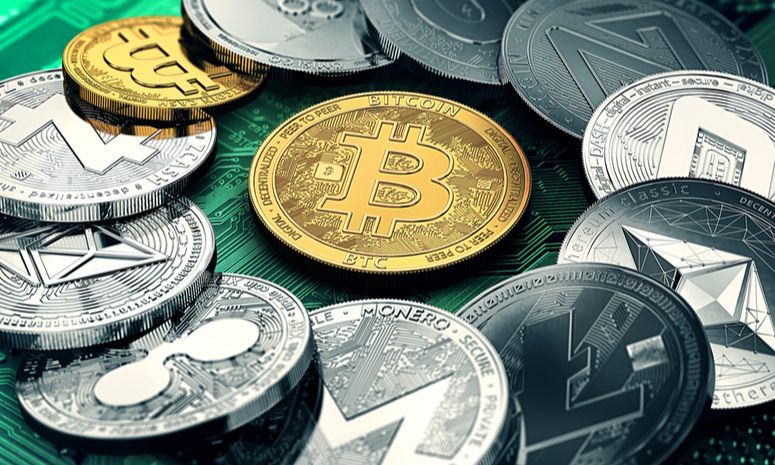You are not alone if you find Bitcoin and Ethereum to be unintelligible jargon. They are becoming more well-liked across the globe, despite the fact that they have a somewhat enigmatic reputation that they gained over the years by serving as a high profit generating asset for investors and as a trustworthy payment network. Cryptocurrency of all types are actually digital based systems within which users shares value with each other just like the monetary system but here in a decentralized manner. Read more about Features of Digital Bitcoin by clicking here.
The currency utilizes encryption software for safe online transactions. This is where the name first appeared. BitQS is one possibility. It’s widely regarded as one of the simplest and easiest to use.
In What Way Does It Operate?
Bitcoin operates on a platform that is decentralized, backed by blockchain technology. To record the details of each new transaction, a new block is generated each time one is made. Nothing is hidden; everything is shown clearly.
As no one can alter the information stored on a blockchain, it is used for its perceived safety. When there are changes to be recorded, only new blocks can be made. In addition, before being added to the chain of blocks, each new block must be verified by nodes (network participants).
Buying Methods
Coinbase, Binance, Gemini, etc. are all examples of cryptocurrency exchanges where you may open an account and buy cryptocurrency tokens. After signing up, you can fund your virtual wallet with fiat currency and use it to buy the tokens of your choosing.
-
Coinbase:
Coinbase is a trusted online exchange where you can buy cryptocurrencies and sell them. You can also store your cryptos with the help of this platform. Like a bank, it serves over 43 million people all around the world. Coinbase was worth $85.78 billion after it went public in April 2021.
Some common Terms of Cryptocurrency
- Cryptocurrency:
A form of unregulated digital cash. It can be used to make any sort of digital purchase wherever it is accepted. Coin Market Cap, the leading cryptocurrency price tracking website, reports that there are over 9,500 cryptocurrencies in circulation at the moment, and that number is expanding rapidly.
- Blockchain:
The most widely used platform for buying, storing, and trading major cryptocurrencies in safety. This platform is a distributed ledger (a group of financial accounts). More than $800 billion worth of crypto transactions have been made on Blockchain.com so far. It is a technology that is not only used in cryptocurrency world but also used in almost all the industries.
- Mining:
This procedure, performed by high-tech computers, releases brand-new bitcoins into circulation. According to Investopedia, it is also essential to the upkeep and development of the blockchain ledger. In exchange for their time and effort verifying and adding blocks of transactions to the blockchain, miners are rewarded with bitcoin.
- Currency Alternatives:
Assets in the form of digital data, such as images, movies, or audio recordings, that are recorded in a distributed ledger and serve as a symbol of ownership.
- Satoshi Nakamoto:
The same as one hundred millionth of a bitcoin. Currently, satoshis are the lowest unit of Bitcoin currency and are used for facilitating smaller transactions on the blockchain.
Some popular cryptocurrencies
- Bitcoin:
The leading digital money at the moment is bitcoin. Somebody, or some group of people, under the alias Satoshi Nakamoto, established Bitcoin and published in 2009. Bitcoin is a decentralized digital currency built on a peer-to-peer network that enables fast payments without the need for a bank.
- Cardano:
A decentralized ledger where validators are compensated in bitcoin for their work confirming transactions. The amount they must put down as a deposit is determined by the quantity of coins they possess. According to TRG Datacenters, an internet infrastructure company, Cardano needs 0.55 kilowatt hours each transaction, while Bitcoin uses 707 KWh.
- Dogecoin:
Dogecoin, one of the most famous cryptocurrencies, was based on a joke in 2013 when the popular internet meme “doge” was turned into digital currency. Dogecoin’s block intervals of one minute make it the fastest blockchain currently in existence. Since there is no limit to minting more coins, their value can grow (or shrink) indefinitely.
- Ethereum:
The second most valuable coin at the moment. Ethereum (ETH) is the most popular blockchain today, and it was launched in 2013. Apps similar to those on iOS and Android may be built on top of ETH, unlike Bitcoin.
- XRP:
According to TRG Datacentres, while being the seventh largest cryptocurrency, it causes the least harm to the environment because each transaction only requires 0.0079 KWh of energy. Whether or whether XRP is a security or a currency is a matter of debate.
Conclusion:
The world of cryptocurrencies has expanded greatly, and there is much more to learn about it, such as NFT, the fundamentals of trading, trend analysis, chart reading, etc.













